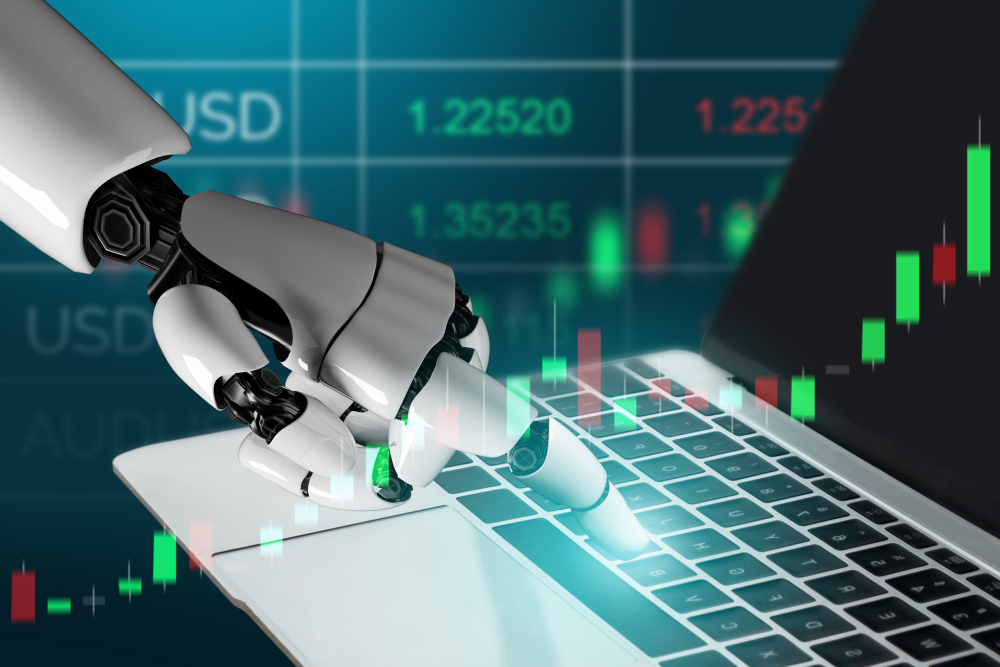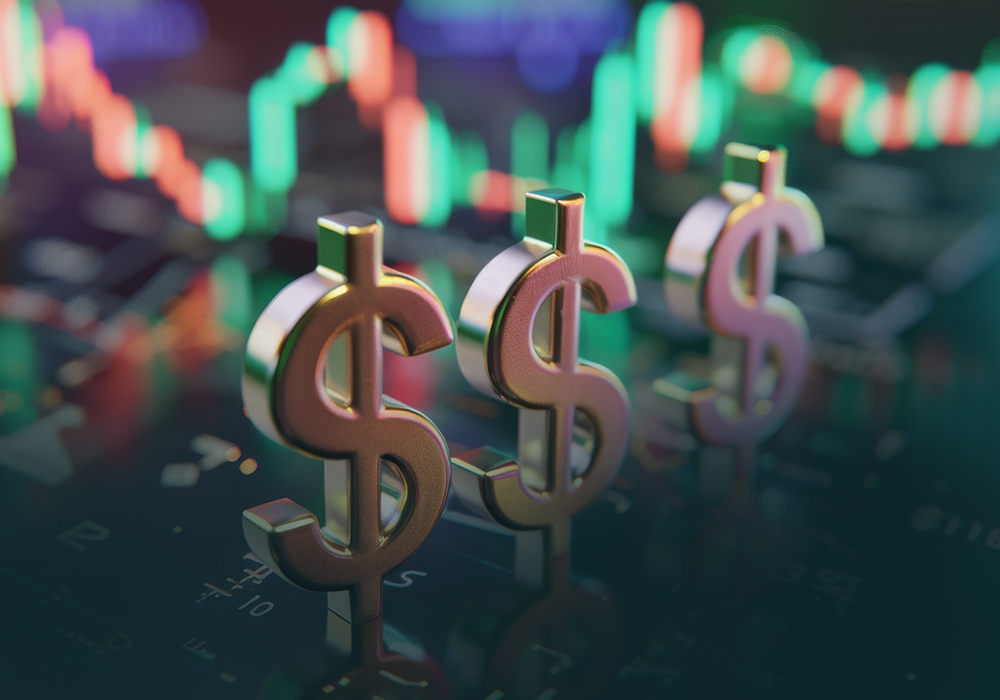The rise of artificial intelligence (AI) in recent years has dramatically transformed various industries, and the financial markets are no exception. AI-driven tools and technologies are changing the way traders approach everything from stock market analysis to execution strategies.
With the increasing ability to process large datasets, identify patterns, and make decisions faster than any human trader, AI is now at the forefront of modern trading.
In this article, we’ll explore how AI is revolutionizing trading, from algorithmic strategies to predictive analytics, and why it’s becoming an indispensable tool for both individual traders and large financial institutions.
The Role of AI in Trading!
Artificial intelligence, at its core, refers to machines or systems that can perform tasks typically requiring human intelligence. In trading, AI algorithms can analyze massive amounts of market data, spot trends, and execute trades more quickly and efficiently than human traders. AI trading tools are employed in a variety of ways, including:
- Predictive Analytics: One of the most powerful applications of AI in trading is its ability to predict future market movements. Using machine learning algorithms, AI systems can sift through historical price data, market trends, and external factors such as news headlines and social media sentiment. These algorithms learn from past data to make highly accurate predictions about price movements, helping traders make informed decisions on when to enter or exit trades.
- Algorithmic Trading: AI-driven algorithmic trading, also known as algo-trading, automates the trading process by using predefined rules to execute trades. These rules are often based on technical indicators, such as moving averages or price momentum, and allow the algorithm to place buy or sell orders when certain criteria are met. AI has taken this process a step further by refining these algorithms through machine learning, which allows the system to adapt and improve its performance over time.
- Natural Language Processing (NLP): AI’s ability to analyze and interpret human language, known as natural language processing, is becoming increasingly important in trading. Traders can use AI-driven NLP tools to process news articles, financial reports, and even social media feeds in real-time to gauge market sentiment. By analyzing millions of pieces of data in seconds, these systems help traders identify market-moving news faster than ever before.
- Risk Management and Fraud Detection: AI is also revolutionizing risk management by providing real-time analysis of portfolio risk. AI systems can monitor market conditions and assess risk levels in trading strategies, automatically adjusting positions to minimize exposure to loss. Additionally, AI is being used to detect fraudulent or suspicious trading activity, protecting both brokers and traders from potentially damaging situations.
Advantages of AI in Trading
- Speed and Efficiency: AI systems can process vast amounts of data and execute trades in milliseconds, far outpacing any human trader. This speed is crucial in high-frequency trading (HFT), where even the smallest price changes can result in significant profits.
- Eliminating Human Emotion: One of the biggest challenges for traders is managing emotions like fear and greed, which can cloud judgment and lead to poor decision-making. AI removes emotional bias from trading by sticking strictly to data and pre-programmed algorithms, helping to maintain discipline and consistency.
- Scalability: AI systems can handle a much larger volume of data than human traders. They can monitor multiple markets, assets, and time frames simultaneously, making them incredibly effective for large institutions or funds managing complex portfolios.
- Adaptability: Unlike traditional trading algorithms, which are often based on fixed rules, AI-driven systems can adapt to new market conditions. Machine learning algorithms continuously evolve as they are fed new data, making them better equipped to navigate unpredictable market environments.

Challenges of AI in Trading
- Data Quality: AI is only as good as the data it is fed. If the data used to train AI models is incomplete, outdated, or inaccurate, the results will reflect that. Traders and institutions must ensure that they have access to high-quality, real-time data to make AI systems effective.
- Complexity: While AI can streamline many aspects of trading, setting up and maintaining these systems requires a high level of technical expertise. Building and optimizing AI models, particularly in areas like machine learning, often requires data scientists and financial engineers, making it less accessible to individual traders without technical resources.
- Regulation and Ethical Concerns: The rise of AI in trading has sparked regulatory concerns, particularly in areas like market manipulation and fairness. High-frequency trading, powered by AI, can create market imbalances that disadvantage smaller retail traders. Regulators are still grappling with how to oversee the use of AI in the financial markets effectively.
The Future of AI in Trading
As AI technology continues to advance, it is likely to become even more integrated into the financial markets. We can expect more sophisticated machine learning algorithms, faster data processing capabilities, and even greater automation in trading strategies.
AI is also likely to play a larger role in retail trading, with user-friendly platforms offering AI-driven tools for individual investors. In the long term, AI could democratize access to advanced trading techniques, making it easier for both institutional and retail traders to compete on a more level playing field.
Conclusion
Artificial intelligence is transforming the trading landscape by improving efficiency, speed, and accuracy in market analysis and execution. From algorithmic trading to predictive analytics, AI is providing traders with new ways to approach the markets and enhance their strategies. However, it’s essential for traders and institutions to balance the benefits of AI with careful oversight, ensuring that these powerful tools are used responsibly.
Start your journey toward financial success with MuxCap.
Popular Posts
- Understanding Stock Market Indicators: Key Metrics for Successful Trading and Investment

- Exploring the World of Crypto Futures and Options: Strategies & Risks

- How Leverage Works in Forex and Futures Markets: Opportunities and Pitfalls

- Algorithmic Trading in the Stock Market: The Future of Automated Investing


























